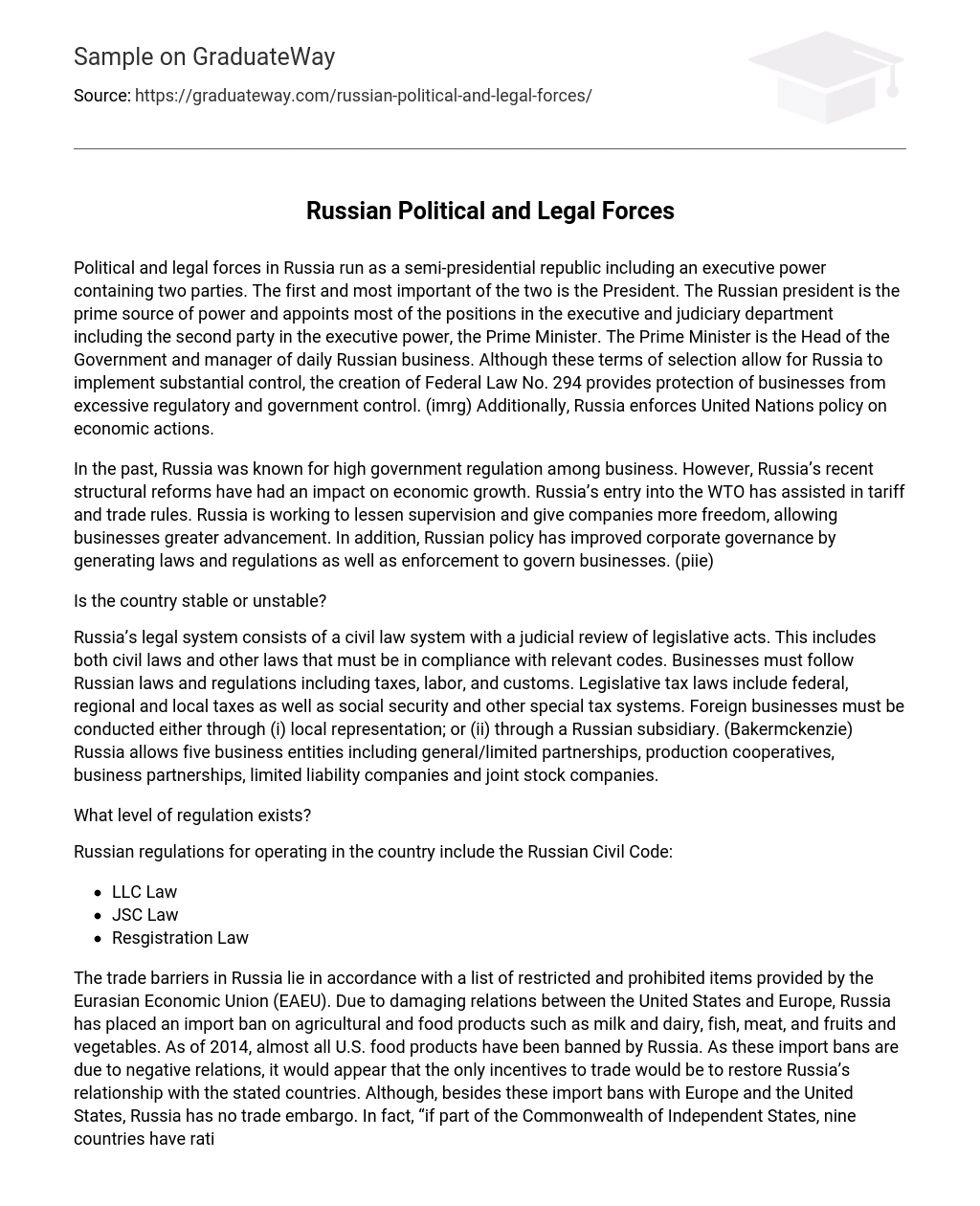Political and legal forces in Russia run as a semi-presidential republic including an executive power containing two parties. The first and most important of the two is the President. The Russian president is the prime source of power and appoints most of the positions in the executive and judiciary department including the second party in the executive power, the Prime Minister. The Prime Minister is the Head of the Government and manager of daily Russian business. Although these terms of selection allow for Russia to implement substantial control, the creation of Federal Law No. 294 provides protection of businesses from excessive regulatory and government control. (imrg) Additionally, Russia enforces United Nations policy on economic actions.
In the past, Russia was known for high government regulation among business. However, Russia’s recent structural reforms have had an impact on economic growth. Russia’s entry into the WTO has assisted in tariff and trade rules. Russia is working to lessen supervision and give companies more freedom, allowing businesses greater advancement. In addition, Russian policy has improved corporate governance by generating laws and regulations as well as enforcement to govern businesses. (piie)
Is the country stable or unstable?
Russia’s legal system consists of a civil law system with a judicial review of legislative acts. This includes both civil laws and other laws that must be in compliance with relevant codes. Businesses must follow Russian laws and regulations including taxes, labor, and customs. Legislative tax laws include federal, regional and local taxes as well as social security and other special tax systems. Foreign businesses must be conducted either through (i) local representation; or (ii) through a Russian subsidiary. (Bakermckenzie) Russia allows five business entities including general/limited partnerships, production cooperatives, business partnerships, limited liability companies and joint stock companies.
What level of regulation exists?
Russian regulations for operating in the country include the Russian Civil Code:
- LLC Law
- JSC Law
- Resgistration Law
The trade barriers in Russia lie in accordance with a list of restricted and prohibited items provided by the Eurasian Economic Union (EAEU). Due to damaging relations between the United States and Europe, Russia has placed an import ban on agricultural and food products such as milk and dairy, fish, meat, and fruits and vegetables. As of 2014, almost all U.S. food products have been banned by Russia. As these import bans are due to negative relations, it would appear that the only incentives to trade would be to restore Russia’s relationship with the stated countries. Although, besides these import bans with Europe and the United States, Russia has no trade embargo. In fact, “if part of the Commonwealth of Independent States, nine countries have ratified an FTA which offers free movement of goods within the territory of the member states.” (Export)
What other legal limitations exist for businesses within the country?
Business limitations in Russia also extend to the language attribute. All businesses functioning in Russia are required to practice the Russian language in paperwork and activities like so. Additionally, it is mandatory that a company’s name be in Russian or conveyed in Russian transliteration.





